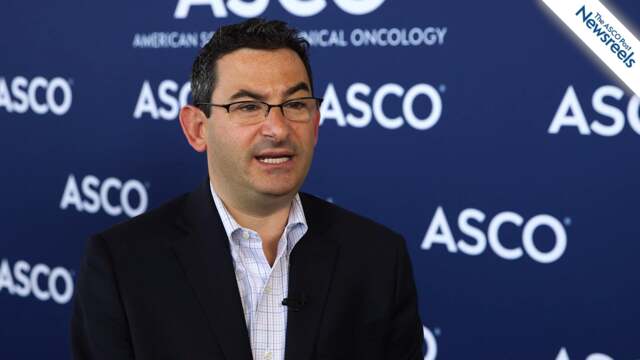Jed A. Katzel, MD, on Head and Neck Cancer: Findings on Treatment of Female Patients
2018 ASCO Annual Meeting
Jed A. Katzel, MD, of Kaiser Permanente, discusses his team’s findings on the disparities in head and neck cancer treatment for women and the possible missed opportunities to take a more aggressive and beneficial approach (Abstract LBA6002).
Susan Halabi, PhD, of Duke University Medical Center, discusses an analysis that showed an increase in overall survival in African American men vs Caucasian men, all of whom had metastatic castration-resistant prostate cancer treated with docetaxel/prednisone or a regimen containing those agents (Abstract LBA5005).
Elizabeth A. Mittendorf, MD, PhD, of Dana-Farber/Brigham and Women’s Cancer Center, and Lisa A. Carey, MD, of the University of North Carolina, discuss the impact of new phase III findings on chemoendocrine treatment vs endocrine treatment alone in hormone receptor–positive, HER2-negative, node-negative breast cancer (Abstract LBA1).
Jeremy S. Abramson, MD, of the Massachusetts General Hospital, discusses study findings on lisocabtagene maraleucel in relapsed or refractory aggressive NHL (Abstract 7505).
Toni K. Choueiri, MD, of Dana-Farber Cancer Institute, and Jonathan E. Rosenberg, MD, of Memorial Sloan Kettering Cancer Center, discuss their perspectives on the top abstracts in bladder cancer presented at the 2018 ASCO Annual Meeting (Abstracts 4507, 4506, 4503, 4504).
Thierry Conroy, MD, of the Institut de Cancérologie de Lorraine, discusses phase III study findings on adjuvant mFOLFIRINOX vs gemcitabine in patients with resected pancreatic ductal adenocarcinomas (Abstract LBA4001).





